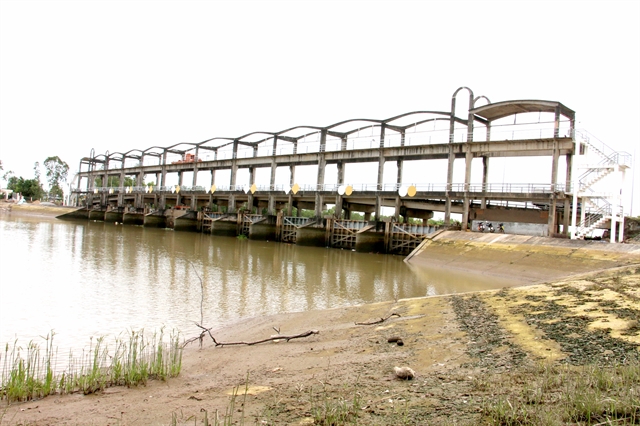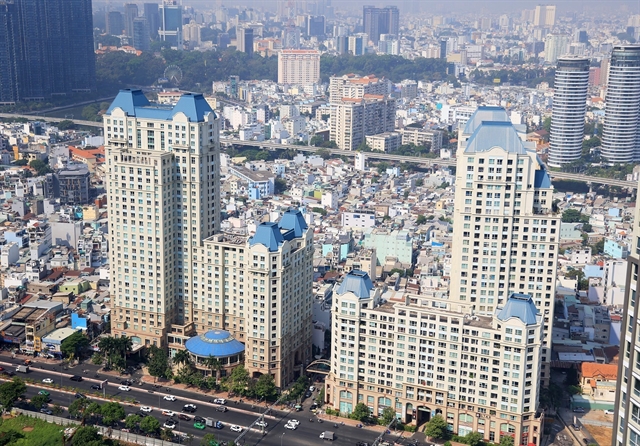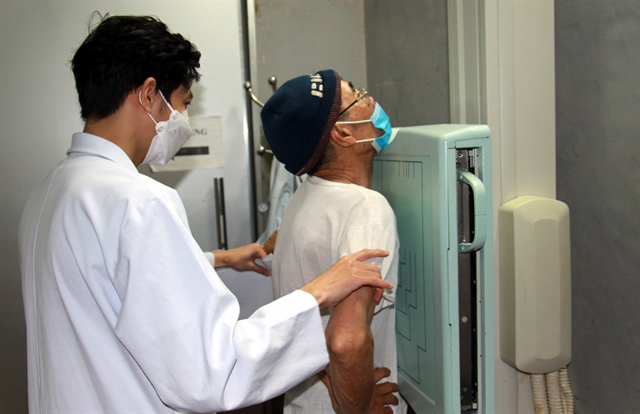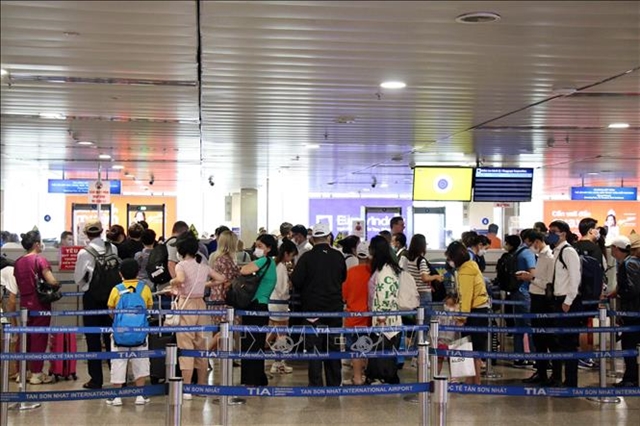 Environment
Environment

Authorities in Cửu Long (Mekong) Delta provinces are taking measures to store water for irrigation and household use during the 2021-22 dry season.

|
| The Ba Lai sluice in Bến Tre Province’s Bình Đại District keeps out saltwater and provides irrigation water for 88,500ha of lands. — VNA/VNS Photo Công Trí |
HCM CITY — Authorities in Cửu Long (Mekong) Delta provinces are taking measures to store water for irrigation and household use during the 2021-22 dry season.
The delta, the country’s largest rice, fruit and seafood producer, is forecast to face a higher level of saltwater intrusion in its rivers than average though less severe than during the 2019-20 dry season.
It had a late flooding season this year and is likely to have higher levels of rainfall in the next few months, according to the National Centre for Hydro-Meteorology Forecasting.
The delta comprises 12 provinces and Cần Thơ City.
To mitigate the impact of saltwater, Cần Thơ City has prioritised the dredging and upgrade of the Ngang, Đông Pháp, E1, and G1 irrigation canals to increase their storage capacity. They add up to a total length of 29.2km.
The region is also speeding up the construction of irrigation works and upgrading deteriorated ones.
Trà Vinh Province is building irrigation projects, upgrading saltwater prevention dams and sluices, and digging new ditches in fields to store water for irrigation.
Phạm Văn Kha, deputy head of Bureau of Agriculture and Rural Development in its Cầu Kè District, said construction of 31 irrigation projects is being speeded, including ditches with a total length of 25km.
It is consolidating eight embankments and other works to prevent saltwater intrusion and provide water to irrigate nearly 3,800ha, he said.
Phạm Minh Truyền, director of the province Department of Agriculture and Rural Development, said saltwater would begin to enter rivers and irrigation canals in early 2022, and the situation is expected to be severe, affecting the winter-spring rice, vegetables and fruits.
Trà Vinh has 54,000ha under rice and 31,000ha under vegetables in the ongoing winter-spring crop, according to its Department of Agriculture and Rural Development.
Tiền Giang Province has built eight steel dams to prevent saltwater intrusion into the Bảo Định and Gò Công areas.
It has also built seven saltwater prevention dams along canals in Châu Thành and Cai Lậy districts and drilled 16 borewells to supply water to people living in remote areas.
Bến Tre Province has built three temporary saltwater prevention dams on the Ba Lai River’s branches in Châu Thành District so that water can be drawn for treatment.
In recent years the delta has built many water supply projects but many areas still face a shortage for household use in the dry season.
In the 2020-21 dry season it undertook 35 groundwater projects to provide water to 330,000 people and 10 water supply works to provide to another 62,000 people living in coastal areas.
In the coastal provinces of Long An, Bến Tre, Trà Vinh, Sóc Trăng, Bạc Liêu, Cà Mau, and Kiên Giang, saltwater is expected to intrude 50 – 60 km into rivers in places that lack comprehensive prevention works in the first two months of 2022, according to the Southern Institute of Water Resources Research. — VNS








